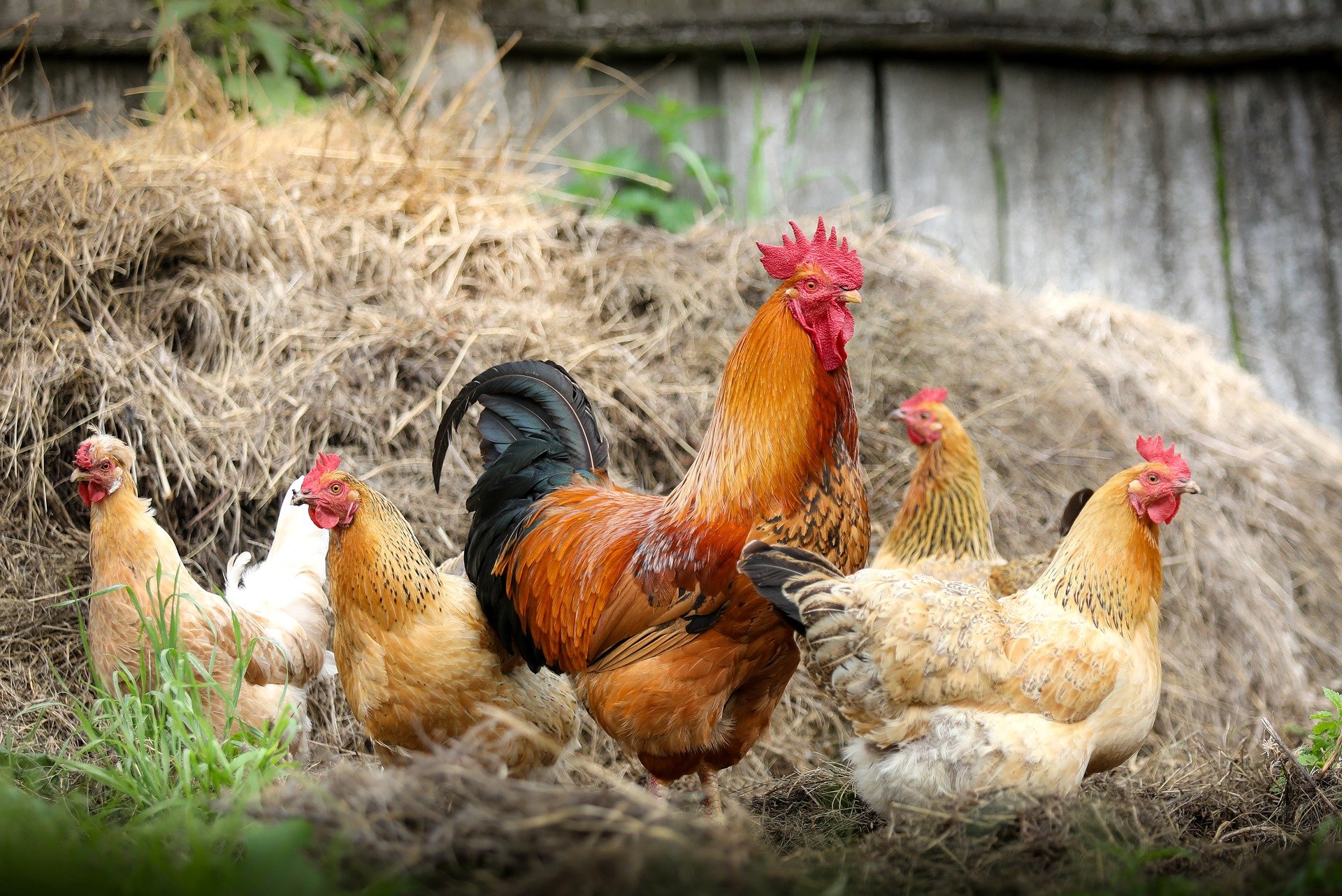When it comes to chicken husbandry, a hen laying eggs is an essential part of the process. From farmers and homesteaders to backyard chicken keepers, the production of eggs from hens is a key part of successful chicken keeping. Hens lay eggs as part of their natural cycle and require specific care and management in order to do so. This article will discuss the basics of hen laying eggs and the essential elements of chicken husbandry related to egg production.
Anatomy of a Hen
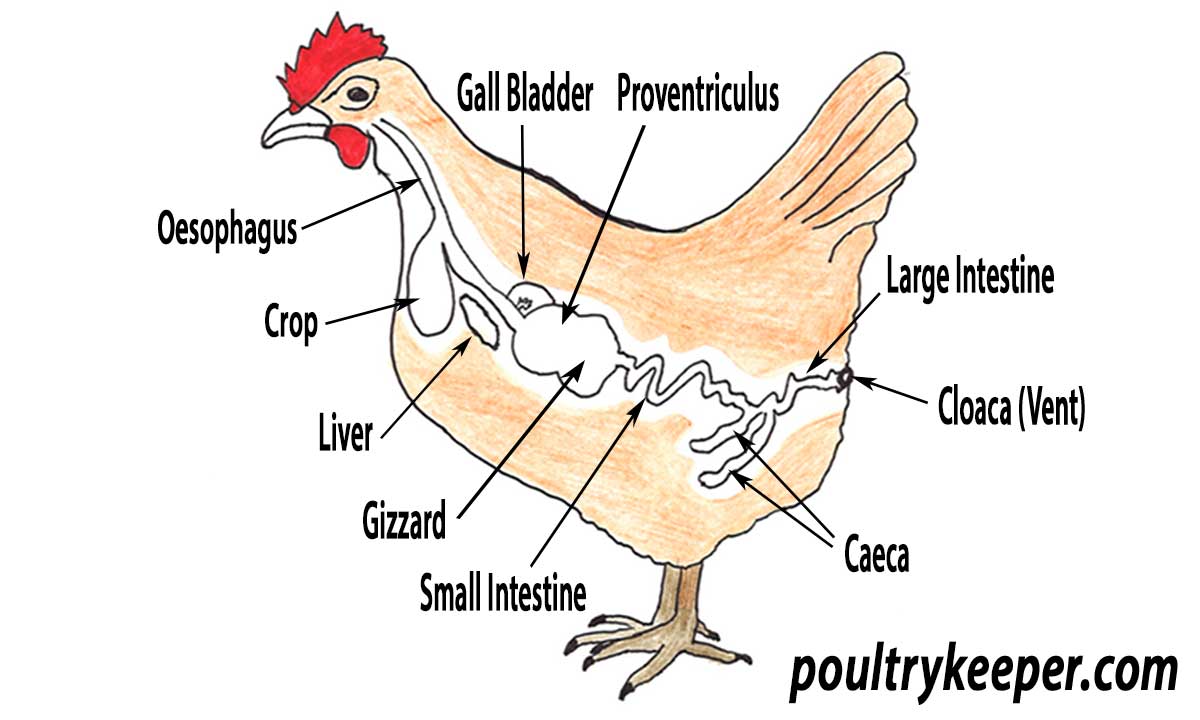
- Beak: The beak of a hen is made up of two parts, the upper and lower mandible, which are connected by a ligament. Hens use their beaks to peck and scratch for food and to groom themselves.
- Head: The head of a hen contains two eyes, two ears, and a number of feathers. The eyes of a hen are well-developed and sensitive to both motion and light.
- Neck: The neck of a hen is long and flexible, allowing the bird to reach its food and to look around for predators. The neck feathers are often brightly colored, helping the hen to attract mates.
- Wings: A hen’s wings are used for balance and to help her reach the highest point of her nest. While they are not suitable for flying, they are used to help the hen move quickly when she needs to flee from a predator.
- Feet: The feet of a hen are composed of four toes. The toes are equipped with sharp claws that help the hen to grip surfaces and to scratch the ground for food.
- Vent: The vent of a hen is an opening located at the base of her tail. This is where the hen lays her eggs and where she expels waste.
A hen’s anatomy is essential for successful hens egg laying and is an important part of chicken husbandry. The anatomy of a hen is well adapted for her lifestyle, allowing her to forage for food, protect herself from predators, and lay eggs.
Why Do Hens Lay Eggs?

Hens lay eggs as part of their reproductive cycle, a natural process that is essential for the survival of their species. It is a part of their instinctive behavior to lay eggs to create offspring and ensure their own survival. The eggs that hens lay can be used for human consumption, as well as for fertilization of the soil, and for hatching chicks.
Egg laying is an essential part of chicken husbandry, as it is an important source of food for many people. It is also a crucial part of poultry farming, as it helps to increase the number of hens and chicks that can be used for breeding and producing eggs.
Besides providing food, chickens laying eggs also provide a valuable source of nutrients, such as proteins, vitamins, minerals, and fats. The eggshells are also a great source of calcium. In addition, they provide a great opportunity to recycle the unused materials into a useful product.
Hens are hardwired to lay eggs, and it is a natural process that cannot be stopped. However, proper care and management of the hens can ensure that the hens lay eggs at a consistent rate and that the eggs are of good quality. Proper nutrition, a clean environment, and a good housing system are essential for hens to lay eggs regularly and efficiently.
In conclusion, hens lay eggs as part of their reproductive cycle, and it is an essential part of chicken husbandry. Proper care and management of the hens can ensure that they lay eggs at a consistent rate and that the eggs are of good quality.
How Often Do Hens Lay Eggs?
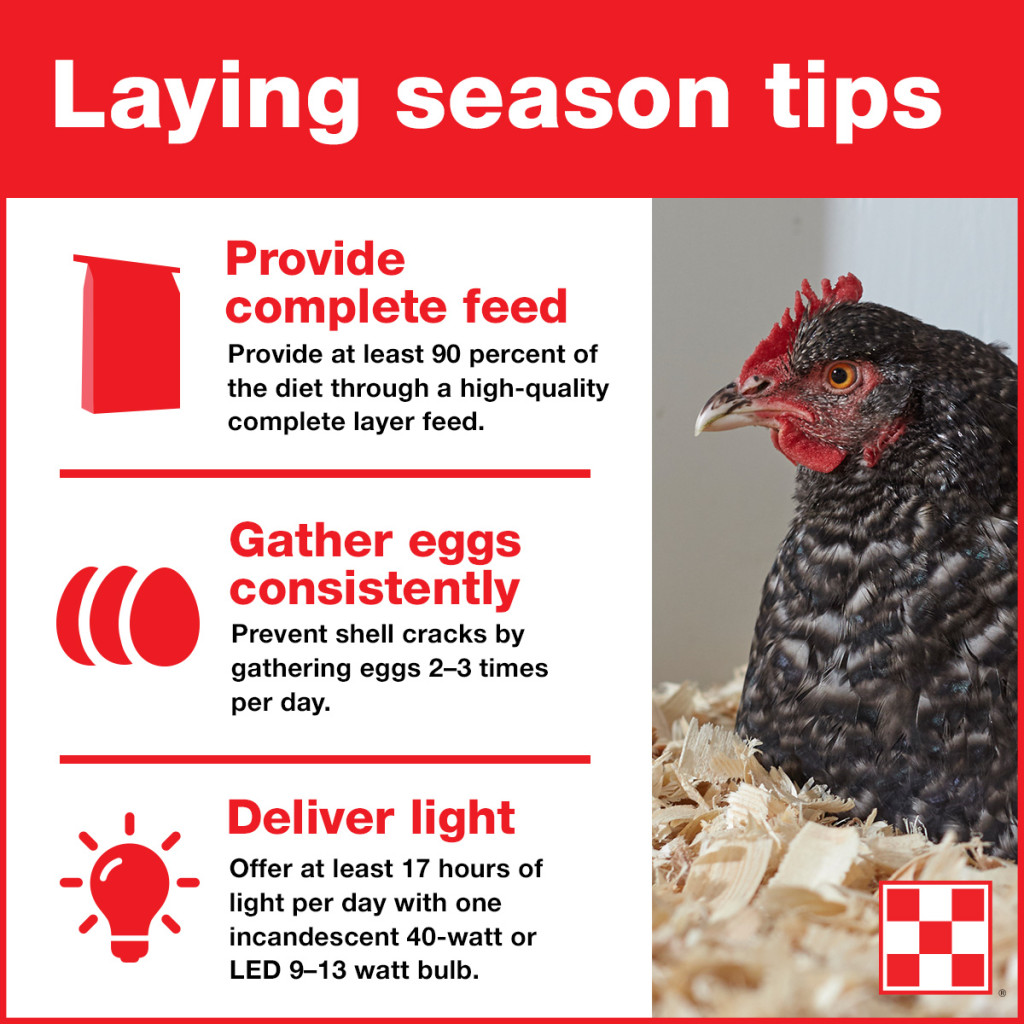
Hens typically lay eggs every 18-26 hours, with some breeds laying more frequently than others. The peak laying season for most hens is between April and June, when the days are longer and the temperatures are milder. Hens may lay fewer eggs during the winter or in hot weather. The average hen will lay around 4-5 eggs a week during her peak laying season.
The number of eggs a hen lays per week will depend on her breed, age and the conditions she is kept in. Breeds such as Rhode Island Reds and Plymouth Rocks tend to lay larger eggs more frequently than smaller breeds such as Silkies or Bantams.
Older hens will usually lay fewer eggs than younger hens, and hens kept in poor conditions may lay fewer eggs. Hens should be kept in a clean environment with plenty of food and water, and should be given access to sunlight and fresh air.
It is important to note that hens will stop laying eggs when they become stressed or ill, so it’s important to take good care of your hens to ensure they remain healthy and productive.
The table below shows the average number of eggs a hen will lay each week based on her breed and age:
| Breed | Age | Eggs per Week |
|---|---|---|
| Rhode Island Red | 1-3 years old | 6-7 |
| Plymouth Rock | 1-3 years old | 5-6 |
| Silkie | 1-3 years old | 3-4 |
| Bantam | 1-3 years old | 2-3 |
What are the Benefits of Hens Laying Eggs?

- Food Source – One of the main benefits of hens laying eggs is that they provide a nutritious food source. Eggs are an excellent source of protein, vitamins, minerals, and essential fatty acids. Eggs are also low in calories and can be eaten in a variety of ways.
- Economic Benefits – Hens laying eggs can provide a significant economic benefit. They can be sold for profit, or used to produce other products such as chicken feed, fertilizer, and even pet food.
- Environmentally Friendly – Hens are naturally environmentally friendly animals. They consume insects, turn over the soil, and provide fertilization for the land. Additionally, their droppings are rich in nutrients and help to improve soil health.
- Companionship – Keeping hens as pets can be a rewarding experience. They are friendly, intelligent animals that can provide a lot of companionship and joy.
While hen laying eggs is an essential part of chicken husbandry, there are many other benefits as well. Eggs provide food, economic benefits, are environmentally friendly, and can provide companionship.
How to Increase the Number of Eggs a Hen Lays
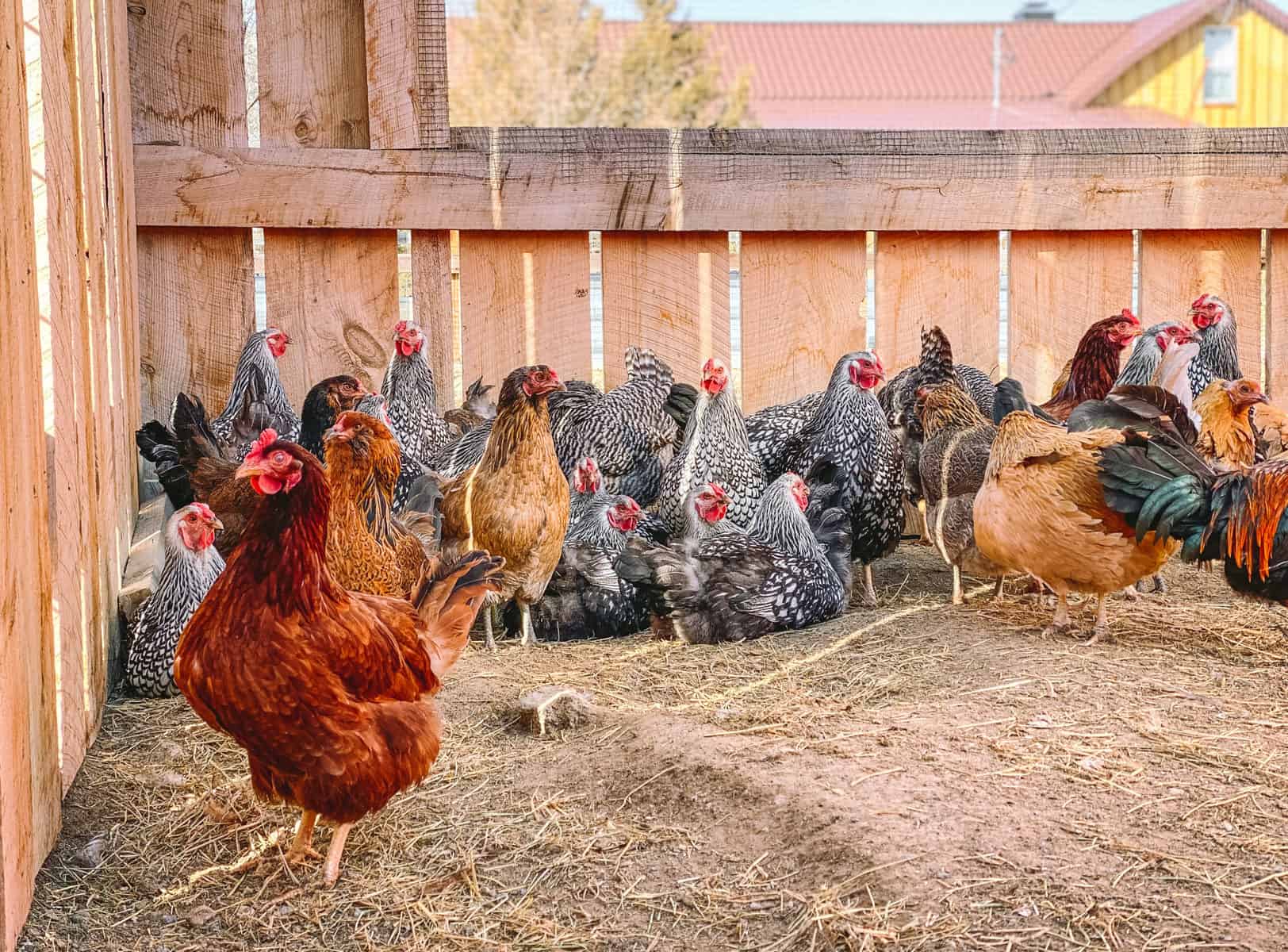
- Provide Optimal Nutrition: Provide a balanced diet that contains all the essential nutrients for a healthy egg production. Improve the quality of feed by adding mineral and vitamin supplements.
- Reduce Stress: Minimise stress in the flock in order to prevent egg production from slowing down. Create a safe and comfortable environment for the chickens.
- Control Light Exposure: Ensure that the hens have access to a minimum of 14 hours of light each day for optimal egg production.
- Provide Proper Nesting Area: Provide comfortable and secure nesting boxes to encourage the hens to lay eggs.
- Ensure Cleanliness: Keep the coop and the nesting boxes clean and free of parasites and pests to ensure that the hens are comfortable while laying eggs.
- Provide Exercise: Give the chickens access to an outdoor area where they can exercise and explore, which can help in improving egg production.
Chicken husbandry involves caring for the chickens and ensuring that they have access to a balanced diet and proper living conditions. One of the most important aspects of chicken husbandry is the egg production of the hens. To increase egg production, it is important to provide optimal nutrition, reduce stress, control light exposure, provide proper nesting area, ensure cleanliness, and provide exercise. Following these steps can help to increase the number of eggs that a hen lays.
What to Feed a Hen to Help Her Lay More Eggs
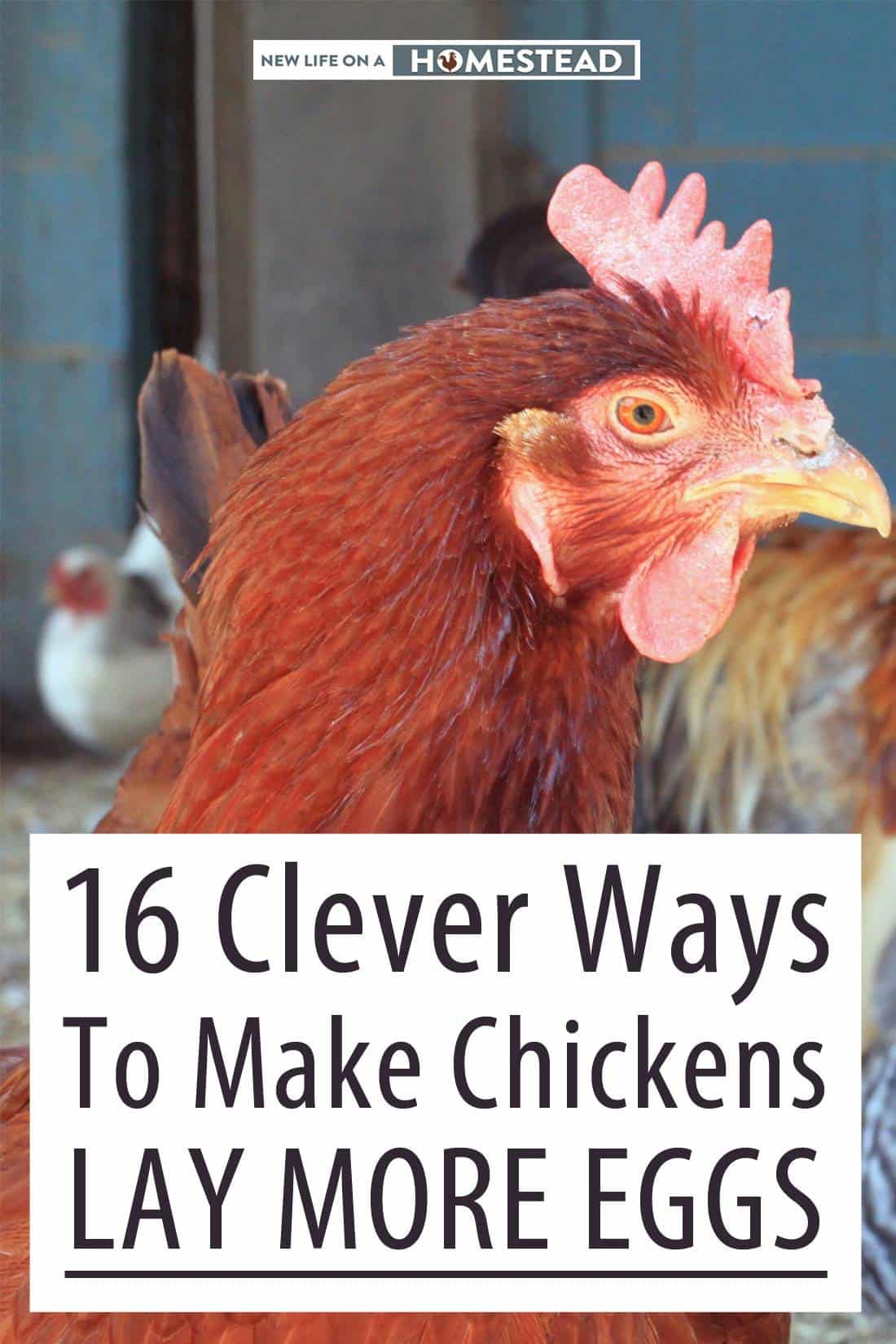
Hens laying eggs is an essential part of chicken husbandry, and the quality and quantity of eggs produced by a hen is largely determined by her diet. To ensure your hen is in peak condition and getting the nutrients she needs to lay healthy eggs, feed her a balanced diet that includes:
- Grit: Grit helps a hen to digest her food properly, and should be provided in a small bowl or tray.
- Protein: Protein is essential for egg production and should make up at least 16% of a hen’s diet. Good sources of protein include black oil sunflower seeds, mealworms, and cooked eggs.
- Vitamins and minerals: A balanced diet should include vitamins and minerals, such as calcium for strong shells and iron for healthy blood. Provide a vitamin and mineral supplement specifically formulated for hens, or mix in some finely chopped vegetables.
- Greens: Hens love greens, and they provide important nutrients for egg laying. Offer a variety of greens, such as kale, collards, and spinach.
- Fruits: Offer a variety of fruits such as apples, oranges, and berries. These provide important vitamins and minerals, and should make up no more than 10% of a hen’s diet.
Feed your hens a balanced diet to ensure they are in peak condition and able to produce a healthy supply of eggs.
What is the Best Environment for a Hen to Lay Eggs?
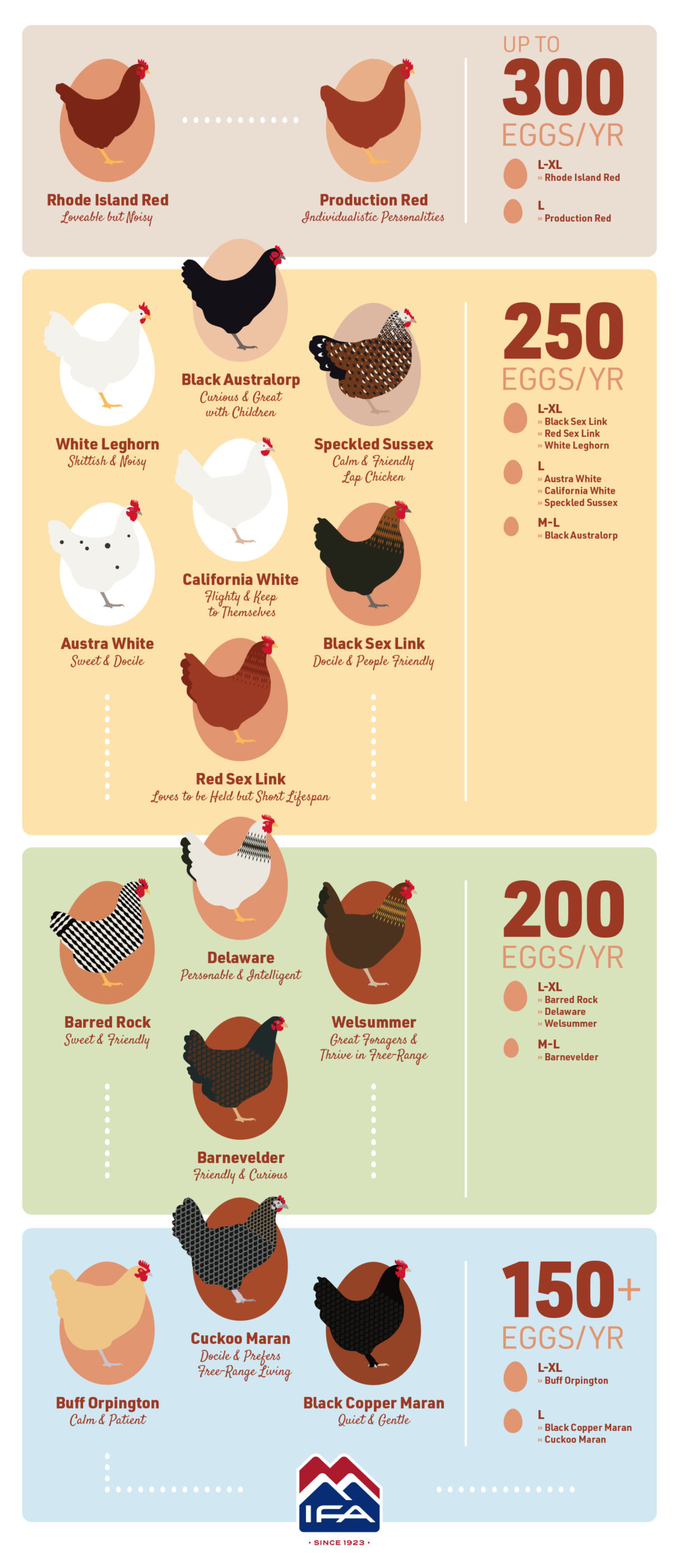
For a hen to lay eggs, it is essential to provide a safe and comfortable environment. A suitable environment should have a proper temperature, moisture, and space for the hens to move around. Hens need a temperature from 18 to 21°C and a relative humidity of 55-65% to lay eggs. The birds should have access to food and water, perches, nests and dust baths.
Perches are a necessary component of the environment, allowing the hens to rest, especially when laying eggs. Perches should not be too high, as this creates a risk of injury to the hens. A good height for the perches is around one foot off the ground.
Nests provide a safe and comfortable place for hens to lay their eggs. The nests should be dark, draft-free and lined with soft material such as straw or hay. The nests should have a lip that keeps the eggs from rolling out.
Dust baths are important for the health of poultry. They help chickens to keep their feathers healthy and to remove parasites. A dust bath should be filled with sand or soil and should be in an area with good ventilation.
Finally, it is important to provide a clean and safe environment for the hens, free from predators and other dangers. By providing a proper environment, chicken owners can ensure their hens are able to lay eggs regularly and healthily.
Potential Challenges and Solutions for Hen Egg Laying
The process of chicken lays eggs or hens egg laying is an essential part of chicken husbandry. As with any animal rearing, there are potential challenges that could arise when attempting to get chickens to lay eggs. Some of the common challenges and potential solutions are outlined below.
Nutrition: If a chicken is not receiving the proper nutrition, they may experience a decrease in egg production. To encourage chickens laying eggs, it is important to make sure they have access to a balanced diet as well as enough calcium for strong eggshells.
Lighting: Chickens need a certain amount of light to trigger egg production. Insufficient light can lead to fewer hens eggs laying. To ensure adequate lighting, install a timer which controls the amount of light the chicken coop receives during the day.
Stress: Stress can be a major factor in reducing the number of hen laying egg. To reduce stress for chickens, create a safe and comfortable environment for them. This includes providing adequate space, protection from predators and other sources of stress.
Age: As chickens age, their ability to produce eggs decreases. To ensure a steady supply of chicken laying egg, regularly replace older birds with younger ones.
Health: A healthy chicken is more likely to produce eggs than one that is unhealthy. Check regularly for signs of illness such as mites, lice, worms and other parasites. If any are found, treat the chicken appropriately.
By taking the necessary steps to ensure optimal conditions for chickens producing eggs, it is possible to have a successful hen egg laying process. It is important to remember that every chicken is unique and may need individualized care. With proper attention and care, a healthy flock of chickens can produce eggs consistently and reliably.
Frequently Asked Questions
How Often Does a Hen Lay Eggs?
- Most hens lay eggs every 25-27 hours. The majority of hens will lay an egg every day or every other day.
- Egg production decreases with age. Hens usually start laying eggs at around 18-20 weeks of age. However, egg production begins to decline when the hen is around two years old.
- Hens need plenty of daylight. Hens need 14-16 hours of daylight in order to lay eggs. If the days become shorter, the hen’s egg production will decrease.
- Egg production is affected by season. Hens tend to lay fewer eggs during the winter months, when days are shorter and temperatures are cooler.
- Hens may stop laying eggs for several reasons. A hen may stop laying eggs due to age, stress, illness, or a lack of nutrition.
What factors affect the frequency of egg production?
The frequency of egg production is largely determined by the breed and age of the hen, as well as environmental factors such as light, temperature, and diet. Young hens that are still growing will produce fewer eggs than adult hens in their prime. Similarly, hens that are kept in a dark environment may produce fewer eggs than those that are kept in a well-lit area. Additionally, hens that are fed a balanced diet with a sufficient supply of calcium and other essential minerals will typically produce more eggs than those that are not.
What are the Signs That a Hen is Ready to Lay Eggs?
When a hen is about to begin laying eggs, she will show certain signs. These signs include: increased activity, a brightened comb and wattles, and the development of a soft, curvy abdomen. She may also appear to be more vocal, eating more, and drinking more water than usual. Additionally, she may start spending more time in the nesting box, and may even start to lay eggs without any prompting. As her eggs begin to increase in quantity and quality, she will become a more active part of the flock.
How do I provide a healthy environment for hens to lay eggs?
To ensure hens lay eggs to their full potential, providing them with a healthy environment is essential. Hens need proper nutrition, balanced feed, access to fresh, clean water, and a safe, comfortable space to lay eggs. A well-ventilated, draft-free hen house with deep litter is the ideal space for hens to lay eggs. The hen house should be cleaned regularly and the litter changed or deep-cleaned every few months. Additionally, hens need access to the outdoors for exercise, fresh air and sunlight. Providing perches and dust-bathing areas for the hens is important and can help keep them healthy and productive.
What can I do to increase the number of eggs a hen lays?
Provide a well-balanced, high-quality diet, free of any toxins. Make sure to include the necessary protein, vitamins, and minerals. Ensure the hen has access to plenty of fresh, clean water. Provide a safe and comfortable environment for the hen, including a secure nesting area and enough space to move around. Make sure to keep the coop clean, free from parasites and disease. Keep a regular light schedule, as light is a major factor in regulating the hen’s egg-laying cycle. Provide supplemental light in winter when the days are shorter. Keep stress levels low by avoiding overcrowding and other disturbances. Offer occasional treats like mealworms, greens, and fruits to keep the hen healthy and stimulated.
Conclusion
Managing a hen’s laying cycle is an essential part of chicken husbandry. Keeping track of daily egg production and providing the hens with a comfortable environment will allow them to lay eggs efficiently. Understanding the signs of a productive hen as well as knowing when to intervene and adjust the hen’s diet can help ensure a healthy egg-laying cycle.
